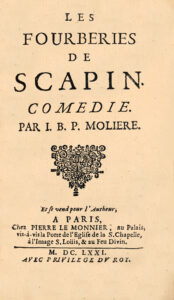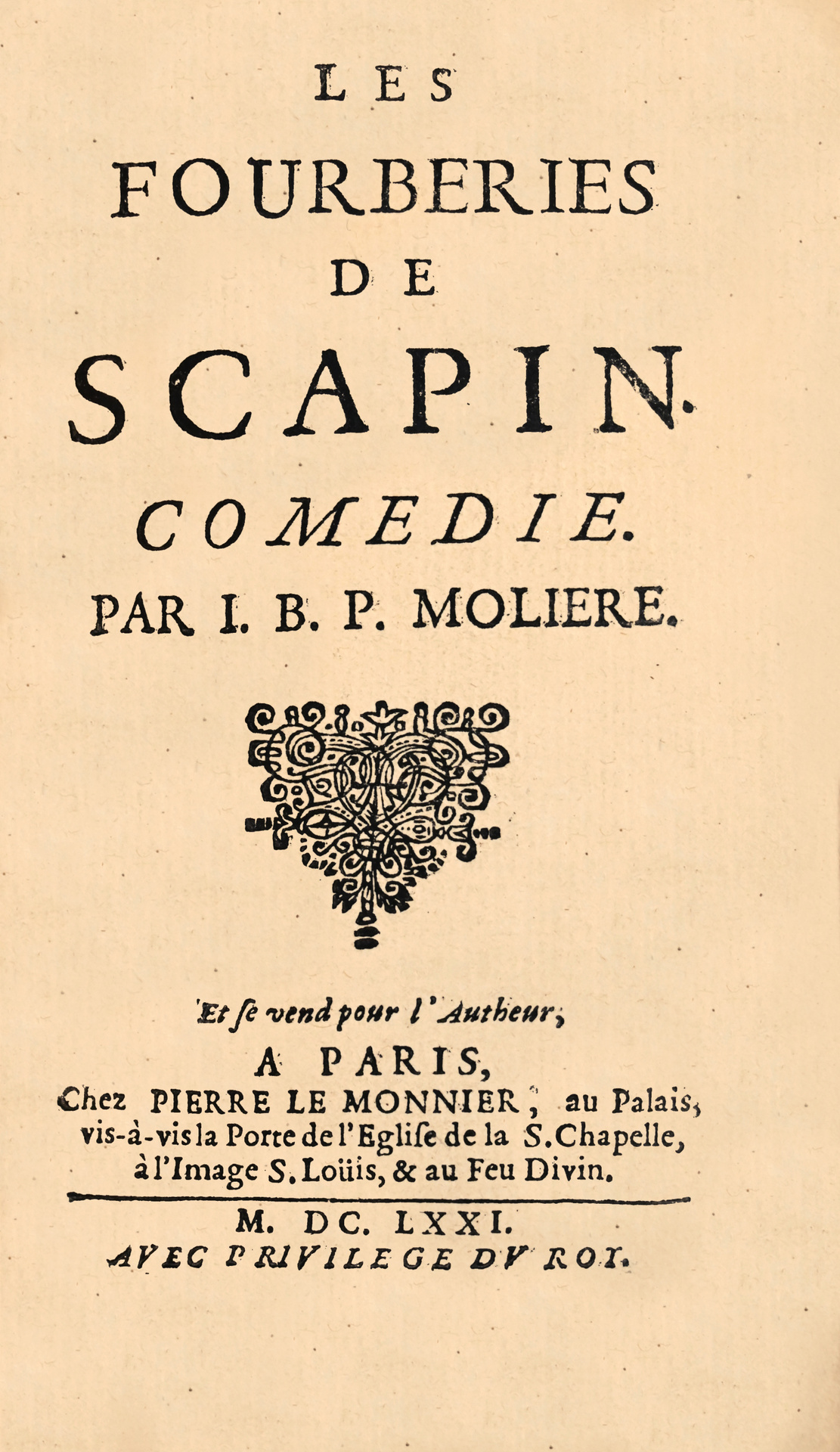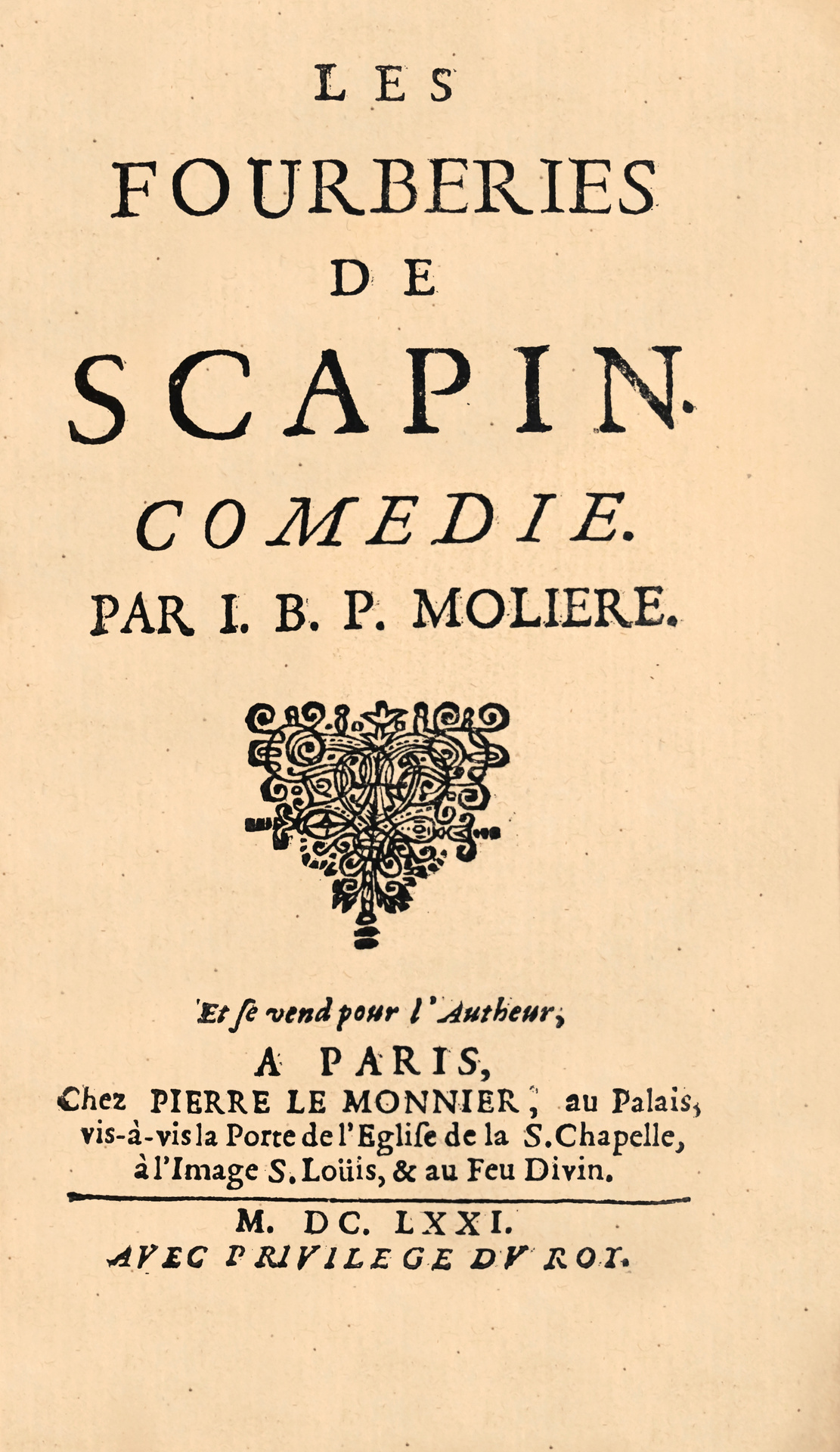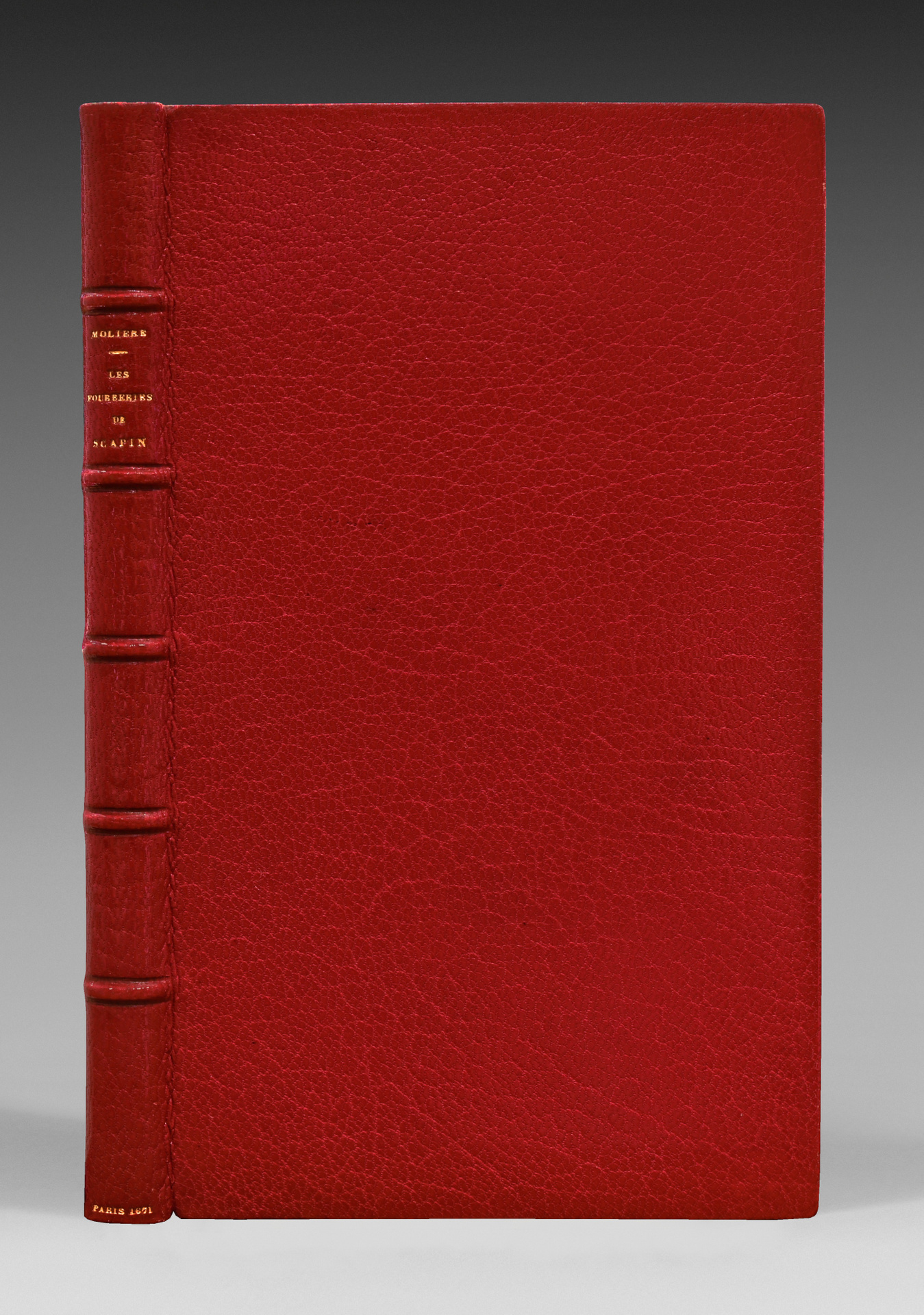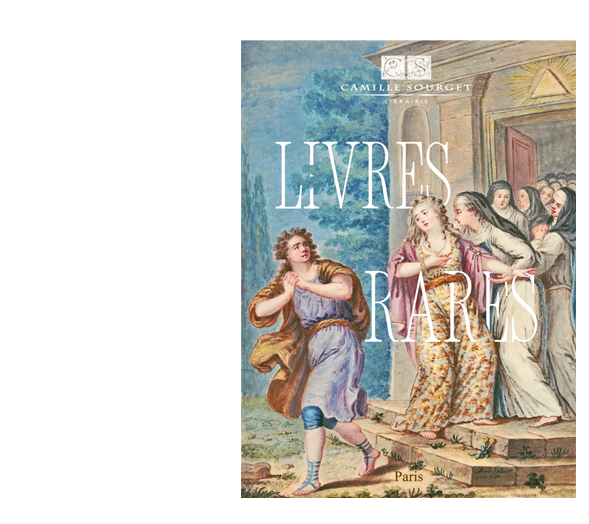Et se vend pour l’Autheur, A Paris, chez Pierre Le Monnier, au Palais, vis-à-vis la Porte de l’Eglise de la S. Chapelle, à l’Image S. Loüis, & au Feu Divin, M. DC.LXXI, avec Privilège du roy, 1671.
12mo [145 x 85 mm] of (2) ll. 123 pp., (2) ll. for the Privilege, (1) bl.p.
Full Jansenist red morocco, spine ribbed, inner gilt border, gilt edges. Chambolle-Duru.
Rare original edition of the “Fourberies de Scapin“, one of Moliere’s most creative comedies and one of the most difficult to find, performed for the first time at the Theatre du Palais Royal on May 24, 1671.
Guibert, I, 321.
“Les Fourberies de Scapin” is a very original play and the plot is only a pretext for an endless game of buffoonish inventions and scenes that are worthy of the great character comedy. Immediately after the death of their author, the play was a resounding success (197 performances from 1673 to 1715).
This Italian-style comedy of intrigue, devoid of satirical or moral intentions, seems to mark Molière’s loyalty to himself as well as to the comics of French and Italian farce: it is in the tradition of “L’Étourdi“, his first comedy in five acts, where everything was already based on incessant inventions of a deceitful valet, as well as in the tradition of his short farces in which blows of the stick rain down on ridiculous characters. Hence the famous reservations of Boileau who regretted in his “Art poétique“, published one year after Molière’s death (1674), that Molière had moved away from the great comedy of manners and characters that made him the Terence of the 17th century (“In this ridiculous bag in which Scapin wraps himself up / I no longer recognize the author of Le Misanthrope“). Loyalty to oneself, loyalty to the comic tradition. Les Fourberies also has an additional dimension, which links this comedy to the great comedy-ballets of the end of Molière’s career: “Monsieur de Pourceaugnac”»,“Le Bourgeois gentilhomme”, “Le Malade imaginaire”. This dimension, which is essentially expressed through the primordial role of the valet Scapin, a true apology of theatrical play, consists in a kind of generalized theatricality. It is enough to reflect on the nature of the “Fourberies de Scapin”, “forgeur d’inventions et de machines” (I,2). In the definition he gives of himself (« et je puis dire, sans vanité, qu’on n’a guère vu d’homme qui fût plus habile ouvrier de ressorts et d’intrigues »), we find the same vocabulary as in the presentation of the tricks that another deceiver, Sbrigani, was about to play on the ridiculous provincial of “Monsieur de Pourceaugnac”: the tricks, stratagems and springs of the deceivers are nothing else than “comedies”. And it is a real play that Scapin performs to Géronte in the famous scene of the sack (III, 2), where, while Géronte is hidden in and blinded by the sack, Scapin plays three characters: himself who pretends to wipe the blows of stick with which he accuses Géronte, and two successive spadassins, a Gascon and a Basque, of which he imitates the language and the accent. In the same way, it was a true play that he had played with the valet Silvestre disguised in front of the other old man (II, 6). Author and actor, Scapin is also an actor’s director: as early as scene 3 of the first act, he had tried in vain to make Octave rehearse by sketching in front of him the character of his father, before preparing Silvestre at length for his role (I, 5). Is Scapin the heir of the deceitful valet of Italian comedy? We see that he is also the heir of Molière playing his own character of director and actor in the Impromptu of Versailles, a little comedy which was, in the true sense of the word, an exhibition of the theater on the theater.
Precious wide-margined copy preserved in its elegant nineteenth century binding in Jansenist morocco signed by Chambolle-Duru, of one of the most famous and rare original editions of French literature.
